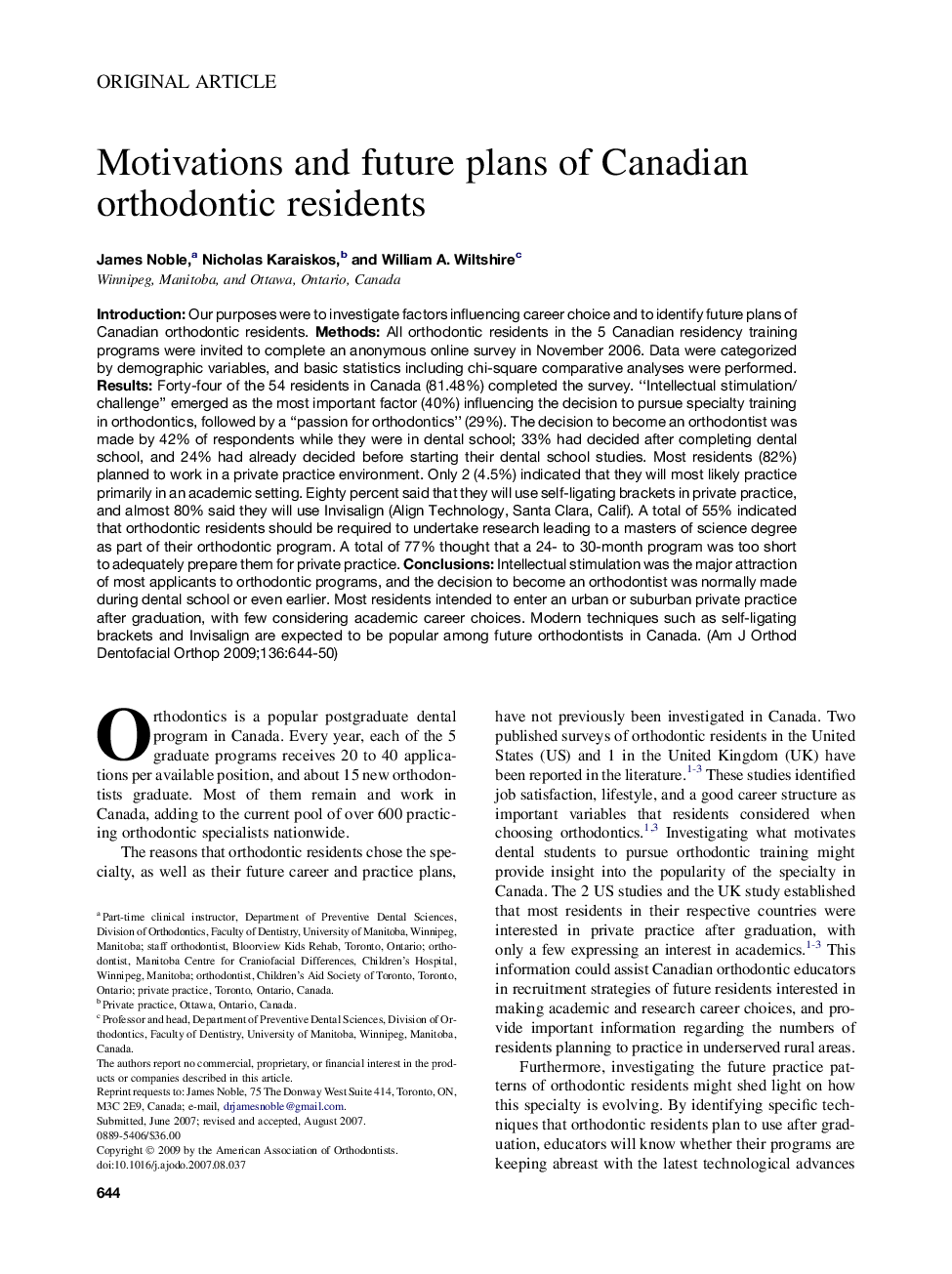| Article ID | Journal | Published Year | Pages | File Type |
|---|---|---|---|---|
| 3118041 | American Journal of Orthodontics and Dentofacial Orthopedics | 2009 | 7 Pages |
IntroductionOur purposes were to investigate factors influencing career choice and to identify future plans of Canadian orthodontic residents.MethodsAll orthodontic residents in the 5 Canadian residency training programs were invited to complete an anonymous online survey in November 2006. Data were categorized by demographic variables, and basic statistics including chi-square comparative analyses were performed.ResultsForty-four of the 54 residents in Canada (81.48%) completed the survey. “Intellectual stimulation/challenge” emerged as the most important factor (40%) influencing the decision to pursue specialty training in orthodontics, followed by a “passion for orthodontics” (29%). The decision to become an orthodontist was made by 42% of respondents while they were in dental school; 33% had decided after completing dental school, and 24% had already decided before starting their dental school studies. Most residents (82%) planned to work in a private practice environment. Only 2 (4.5%) indicated that they will most likely practice primarily in an academic setting. Eighty percent said that they will use self-ligating brackets in private practice, and almost 80% said they will use Invisalign (Align Technology, Santa Clara, Calif). A total of 55% indicated that orthodontic residents should be required to undertake research leading to a masters of science degree as part of their orthodontic program. A total of 77% thought that a 24- to 30-month program was too short to adequately prepare them for private practice.ConclusionsIntellectual stimulation was the major attraction of most applicants to orthodontic programs, and the decision to become an orthodontist was normally made during dental school or even earlier. Most residents intended to enter an urban or suburban private practice after graduation, with few considering academic career choices. Modern techniques such as self-ligating brackets and Invisalign are expected to be popular among future orthodontists in Canada.
